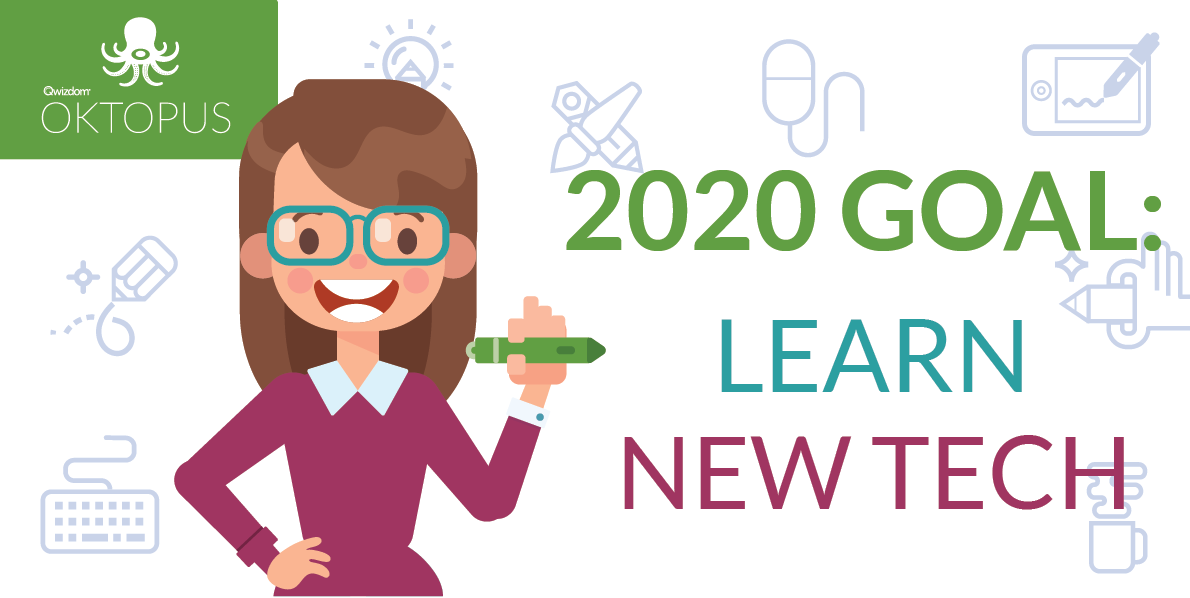Unbelievably, we’re already at the start of a new year, more unbelievably a new decade, and the general feeling is to set new goals, accomplish new things, and learn new skills. Teachers are no exception, but considering the limited time that you have available, it is important those new skills be easy to learn so they can be quickly put into practice. Especially as we cross into another decade in the 21st century, skills should enhance classroom collaboration, embrace the use of interactive tools (i.e. interactive boards, tablets, student clickers), and become part of your regular routine in a technology-connected classroom.
Learning new tech can get cumbersome when you think it isn’t applicable or useful. How can learning a new skill, or set of skills, be a benefit versus a burden? Here are some things to consider for any skills learning program:
- To better retain the learning, real-life simulations should be incorporated. For example, if the training requires learning new software, the back story should revolve around real classroom situations.
- When possible, spread out the learning. It is easier to take in new information, and practice it, during shorter sessions with just enough information that it doesn’t get overwhelming. Better yet, learn new skills when you’re ready to learn and at your own pace.
- Building on the importance of incorporating real-life situations, applying new skills right away and repeatedly also helps strengthen retention. When we make it a habit to consistently apply what we learn, the new skill becomes automatic.
- Teachers are teachers for a reason – we love teaching! This love helps us to synthesize new skills into smaller, simplified chunks for our students. When we do that, our understanding of the skills and how they can best be introduced and practiced by our students is deeper.
- How do you know that you understand the new skill? Test yourself! Run yourself through situations that require you to use the skills in a meaningful way. If the training program includes an assessment, all the better.
All this being said, we can become over-inundated with new tech and software that we need to implement in a school year. This can be especially daunting when the school year seems to speed up, and time for focused and thorough learning seems scarce. We can appreciate online professional development programs that help us learn new tech skills on our schedule, adapting to our needs as busy professionals. One such training program is for the OKTOPUS annotation and collaboration software for interactive whiteboards. The OKTOPUS Educator Certification Course was designed to teach new skills using a “Show Me! Try It! Test Me!” learning model.
Lessons feature software simulations to teach how OKTOPUS education tools work, activities that encourage practice with the new skills, and knowledge checks and quizzes to assess understanding of key features. The bonus? After course completion, teachers receive certification for what was learned and unlimited access to the course content. Feeling a little rusty about using those new tools? Revisit the course modules as often as needed to review the target skills and gain the confidence needed to successfully use OKTOPUS with your students.
Why worry about squeezing in professional development when OKTOPUS provides effective PD on your time? The OKTOPUS Educator Certification online PD is focused on tech skills you will use with your students, incorporates active learning and assessment features, and helps you use software that will strengthen classroom collaboration. To learn more, go to www.qwizdomoktopus.com/professional-development.

